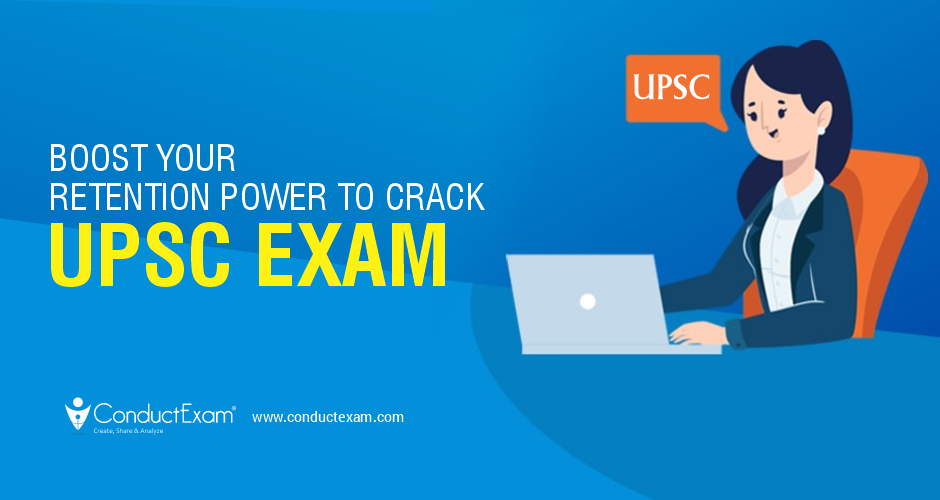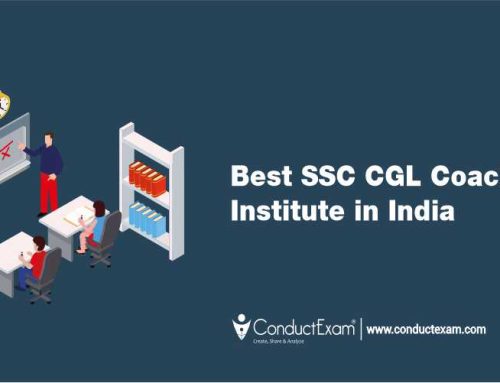Introduction :
The power of memory plays an important role in how we experience life, remember important events, perform important tasks, and help us reach our goals. Although humans cannot remember things, we can still do amazing things in our lives. When it comes to exams like UPSC, in general, memory strength plays an important role to maintain a comprehensive exam preparation program. But the question is how can we focus and build our memory as we prepare for the exam: Here are 6 or more tips to keep you motivated and focused as you begin to prepare for the UPSC exam.
Importance of memory power to crack UPSC
Remembering all the content you have learned while understanding/studying many things is very important in UPSC. Additionally, the broad curriculum of CSE makes it more challenging. Hence, IAS aspirant is often reminded of the importance of improving their memory.
1. Determine Your Strength
Before entering the road of UPSC preparation, it is always better to first identify the strong differences that you can apply to them and your target area. Similarly, once you identify your weak areas, you can work hard to improve when you fail an exam. Know your strengths and weaknesses, and do half the work. This means that it will help you find your mind when you are preparing for the exam. Of course, you need to know your goals and why you want to become an IAS officer! Finding your goal gives you a reason to work hard every day until you reach your goal.
2. Follow Daily Routine
Discipline plays an important role while preparing for the UPSC exam. But our system has changed with the use of the internet, social media, YouTube, etc. Before the Internet revolution, the world was much more organized than it is today. We don’t mean that the internet is terrible; it is, after all, a really useful tool, but it is also a double-edged sword. According to a study, almost 75% of Indians check their phones before and after sleep. You might be wondering how this has anything to do with UPSC or improving memory, but what if we tell you that it is ruining your process, which should be on your way? , help pass exams like UPSC and keep your memory alive? Get up early in the morning, go to bed early, get a full night’s sleep at least 7-8 hours, eat on time, and eat good and healthy food.
3. Imagine Or Visualization
Whatever you study, keep in mind the learning and vision after graduation. This can help you absorb better. Whenever possible, use diagrams, maps, photos, and videos to visualize what you have learned. Not only will this make your studies more enjoyable, but it will help you retain your memory. Techniques like acronyms, picture palaces, and mnemonics can also help you remember more.
4. Refresh Yourself
In general, in many cases, our peers encourage students to study for a long time, but this is a terrible idea. The best thing to do is to shorten your study period because studying more than you can reduce your ability to catch up. Take a break in between and come back with a new chapter each time. Make sure you have a short but effective study time to make sure you understand everything you read.
5. Educate and Test Yourself with Online exam software
Another way to learn is to teach. When you teach someone, you also learn. We don’t suggest you be a teacher, but you can teach your friends UPSC their poor subject if you know the subject well. You can perfect your knowledge and pass it on to others in this way. Education strengthens your knowledge and memory, as well as your self-confidence, which acts as a magic wand in the face of the problems of the test.
You can also do self-learning with online exam software. You can take your own exam on it. The exam is an important part of the learning process. You need to evaluate what you think you learned and see if you remember it or not. You can benefit twice as much by taking regular tests and asking yourself questions. One is that you find out what you did wrong, the other is that you can correct them and remember them for a long time because we don’t forget what we did wrong easily.
6. Make Notes and Revise It
When you are preparing for the UPSC exam, it is a smart way to understand and take notes, especially in industry exams. An automatic record helps you before the test to change over and over so you don’t have to go back to the program. Without hard work, preparation, and continuous revision of one’s notes, one cannot hope to pass the main exam. With a big program like UPSC, it is understandable to forget what you have studied once or twice. Oftentimes, it hurts to forget what you have already learned. Therefore, flexibility is the key that holds everything together. Schedule a daily, weekly, monthly, and advanced review schedule that’s convenient for you. It definitely helps to cover and understand the whole process.
7. Good Environment
First of all, if you have decided to take the exam, you must know that passing the exam requires careful, deliberate, and thorough preparation. For your studies, you need to keep a quiet and calm study area so that you can focus more. You can choose the study center, whether it is the library or your study room, etc. for at least an hour long to help you concentrate better. For this reason, your study environment plays an important role in concentrating and studying effectively.
8. Be Confident and Control your Emotions
Not all of us are happy, but we have found a way to be content despite our difficulties. However, if you want to be a civil servant and consider yourself an IAS, forget everything and focus on three things every day: eat, sleep, study and repeat. You lost your effective memory and are filled with disappointment and anguish when you let your difficulties stop your desire to become an IAS. Throw them away and remind yourself that everything is fine and it will be fine if you become an IAS. Although this argument does not apply to everyone, many of you will be able to identify with it.
9. Be Motivated
Motivation is a short key for each of us. However, to clear the exam, you have to work hard and get the reward of being selected by UPSC. Almost all the candidates face many extreme situations during their preparation, which helps and improves and improves them. If you want to clear UPSC, you need to stay motivated all the time and in every possible way.
The most important thing is to remove negative influences from your life. There will be many people who will tell you that you are not good enough. Cut the naysayers out of your life the day you see them. Surround yourself with good people who believe in you and think you can do it. People who encourage you and make you happy. And make sure you are surrounded by people who believe in you. That is why it is very important to spend time with your supporters, near and dear ones.
How much time one should study a day to crack UPSC?
Many candidates say they study 18-20 hours a day, while others say they passed the exam after studying only 6-7 hours a day. There is no perfect solution to this problem, candidates should decide the number of hours of study per day based on their abilities and needs. Therefore, it is one of the most frequently asked questions, and one of the most frequently asked answers. See, how much you can read and understand in a given time is up to you. It depends on the ability to think, the ability, and the ability to memorize.
Keep Focus on Positivity
Try not to let your thoughts wander. We understand that’s saying but it’s hard to do that. It may take time to learn, but if you put in the effort, you will see results within the first week. Writing down your negative thoughts helps you stop wandering into distractions
Recommanded : UPSC Exam
Conclusion:
Just to make things clear, UPSC is not a memory test. In fact, there is nothing to memorize! What you need is a conceptual knowledge of everything and the ability to connect things. For example. You will be able to explain the history of the place and its geography, its economic development, and its political relations with the modern world.
No one asks you for an explanation and if you analyze the questionnaire carefully, there are almost no “What” questions. Most of them are questions of what happened, Critical Analysis, or Interpretation type. So no memory upgrade is required. Just focus on understanding the subject and its connection to everything else.






Leave A Comment